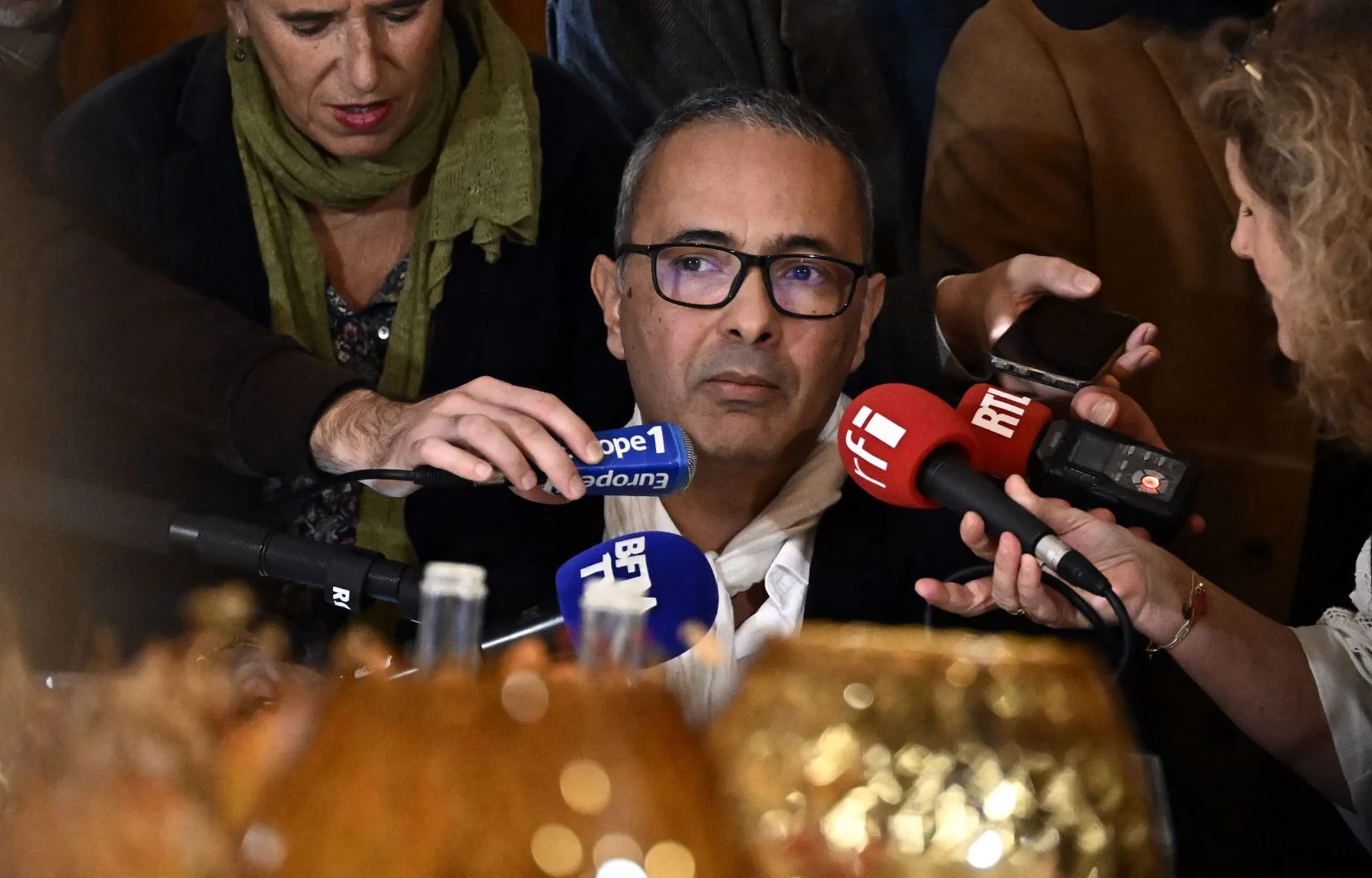
In 2024, the French-Algerian writer won France’s top literary prize, the Prix Goncourt, for his novel “Houris”, centred on Algeria’s civil war between the government and Islamists in the 1990s.
The novel, banned in Algeria, tells the story of a young woman who loses her voice when an Islamist cuts her throat as she witnesses her family being massacred during the war.
In November, the woman, Saada Arbane, told Algerian television, using a speech aid, that the main character in the book is based on her experiences.
An initial court hearing in Paris is scheduled to take place on May 7, a source close to the case told AFP.
A summons was delivered to the writer’s publisher Gallimard as well as the novelist himself during a book signing near the southwestern city of Bordeaux on Thursday.
Contacted by AFP, Gallimard declined to comment.
Daoud, 54, has denied his novel is based on Arbane’s life.
According to a copy of the summons seen by AFP, Arbane is seeking 200,000 euros ($209,000) from Daoud, arguing that a “coincidental” resemblance is “totally unthinkable”.
The 31-year-old woman says she told her story during a course of treatment with a psychotherapist who became Daoud’s wife in 2016.
– ‘Intimate story’ –
She accuses Daoud of using the details narrated during their therapy sessions in his book.
Arbane did not want her “singular, intimate and unique story” to become public and “never gave her consent for her account to be used”, according to the summons.
She also suggested some details about her story that she says were used in the book could lead to criminal proceedings against her in Algeria, according to the summons.
The document cited one of Daoud’s interviews in which he was asked if his novel was inspired by a real woman.
“Yes, I knew a woman with a cannula,” he said, apparently referring to her speech aid. “She was a real metaphor for this story.”
The summons also quoted two medical specialists in France and Algeria who attested to the unprecedented nature of Arbane’s injury.
The document also listed several dozen passages from the novel about the family of the main character, the attack she suffered, her scars and tattoos as evidence of the alleged “plundering”.
“This process, in the judicial history of invasion of privacy, under the guise of fiction, is absolutely exceptional,” said William Bourdon and Lily Ravon, the plaintiff’s lawyers.
“It is exceptional in terms of the extent of the borrowing,” the lawyers said, adding that the woman had as a result suffered “very serious harm”.
The lawyers said that, while Daoud presented himself as a “committed writer”, “by writing this book, he has disassociated himself from all ethics, from respect for women’s rights and from the respect he owed a person he knew.”
Two complaints have already been filed in Algeria against Daoud and his wife.
– ‘Public knowledge’ –
Daoud said in December that “everyone” knew the story in Algeria.
“It’s public knowledge,” he said.
“I am sorry if she recognizes herself in a novel that does not cite her, that does not recount her life, that does not recount the details of her life,” he said.
Daoud also suggested that the woman could be “manipulated by the regime” of which he is a critic.
Gallimard has defended Daoud and his wife, saying they were the victims of orchestrated attacks following the banning of the book in Algeria.
Tensions have surged between France and Algeria, its former colony, with the far right urging the government in Paris to take tough measures against Algiers, including cancelling aid, cooperation agreements and delivering visas.
Algeria has been holding French-Algerian novelist Boualem Sansal on national security charges. Sansal, who was arrested at the Algiers airport in November, is a major figure in modern francophone literature.
gd-as/ah/jhb
© Agence France-Presse






